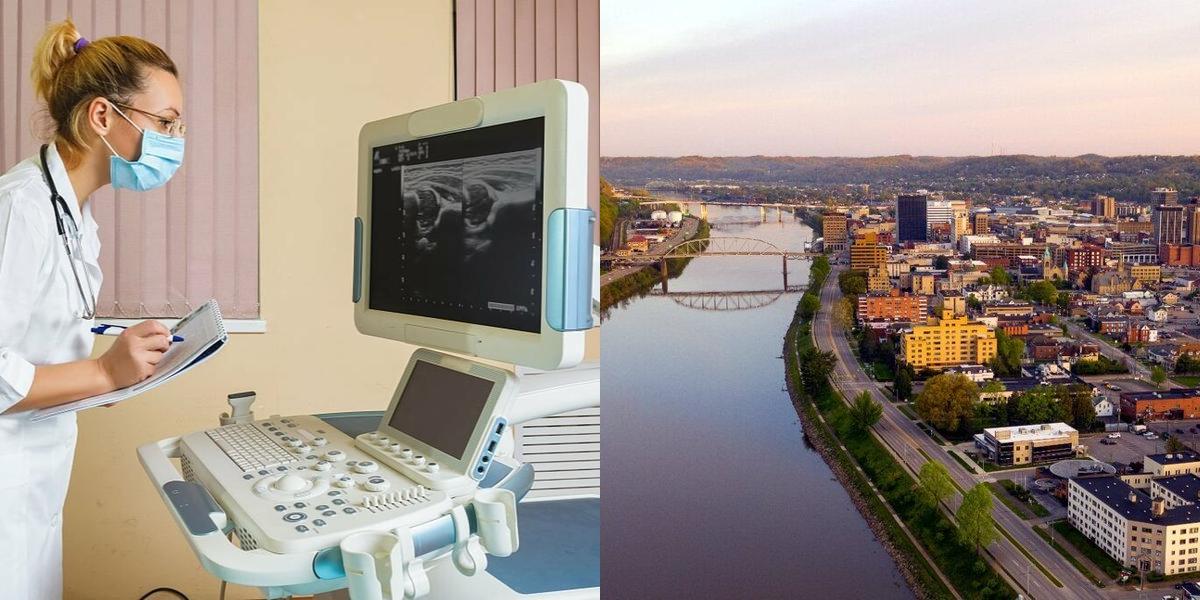How to Become a Medical Sonographer in West Virginia (2024)

Starting your journey to become a Diagnostic Medical Sonographer involves understanding the path through sonographer schooling and choosing the right program. Learn about the key steps, requirements, and important insights to begin your rewarding career in healthcare.
Key Points
- Diagnostic Medical Sonographer uses specialized equipment to create images of patients' internal organs, aiding in medical diagnosis and treatment.
- Completing an accredited sonography program typically takes about 2 years for an associate's degree or 4 years for a bachelor's degree.
- In West Virginia, the average sonographer salary is approximately $70,730 per year.
Career Paths and Opportunities after Becoming a Diagnostic Medical Sonographer
Becoming a Diagnostic Medical Sonographer opens up various career paths and opportunities. Here are some options you can consider:
-
Hospital Settings: Many Diagnostic Medical Sonographers work in hospitals, where they provide imaging services to a wide range of patients. Hospitals often have specialized departments for different areas of sonography, such as obstetrics and gynecology or cardiovascular sonography. Working in a hospital setting allows you to collaborate with a multidisciplinary team of healthcare professionals and gain exposure to various medical conditions.
-
Private Clinics: Private clinics and imaging centers also employ Diagnostic Medical Sonographers to perform ultrasound examinations. These settings may focus on specific areas of sonography, such as musculoskeletal or breast sonography. Working in a private clinic can provide a more personalized patient experience and the opportunity to develop long-term relationships with patients.
-
Physician's Offices: Some physicians' offices have in-house ultrasound capabilities, allowing them to perform diagnostic imaging without referring patients elsewhere. Diagnostic Medical Sonographers working in physician's offices may have the opportunity to work closely with a specific medical specialty, such as obstetrics or cardiology.
-
Educational Institutions: After gaining experience as a Diagnostic Medical Sonographer, you may consider pursuing a career in education. Many community colleges and vocational schools offer sonography programs and hire experienced professionals to teach and mentor students. This allows you to share your knowledge and contribute to the future of the field.
-
Research and Development: If you have a passion for innovation and technology, you may be interested in a career in research and development. Research institutions and medical device companies often employ Diagnostic Medical Sonographers to participate in clinical trials, develop new imaging techniques, and improve existing technologies.
-
Management and Administration: With experience and additional education, you can pursue management or administrative roles within healthcare organizations. These positions involve overseeing the operations of sonography departments, managing staff, and ensuring compliance with industry regulations.
Frequently Asked Questions
How much do ultrasound techs make in WV?
The average sonographer salary, which include ultrasound techs, in West Virginia is approximately $70,730 per year. Salaries can vary based on experience, location, and employer. Working in metropolitan areas or specialized medical practices may offer higher earning potential.
How long does it take to become a sonographer in West Virginia?
To become a sonographer in West Virginia, you typically need to complete an accredited diagnostic medical sonography program, which usually takes about 2 years for an associate's degree or 4 years for a bachelor's degree. Clinical training is also required to gain hands-on experience.
What do you need to become a sonographer in West Virginia?
To become a sonographer in West Virginia, you need to fulfill educational requirements by completing an accredited sonography program. After graduation, obtaining certification through organizations like ARDMS is essential. Although West Virginia does not require state licensure, certification demonstrates competence and enhances job prospects.
Final Thoughts
Becoming a Diagnostic Medical Sonographer can be a rewarding and fulfilling career choice. By following the steps outlined above, you can obtain your certification, secure a job, and explore various career paths in the field. Remember to continuously update your skills and knowledge through continuing education and stay connected with professionals in the industry. With dedication and a passion for patient care, you can become a highly skilled Diagnostic Medical Sonographer and make a positive impact in the lives of patients.
If this article doesn't match what you're looking for, you can check out these other articles:

Athena is Co-founder and CEO of Dreambound.



